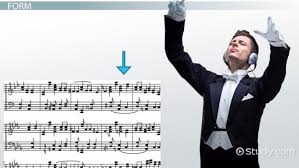Using Musical Themes In Your Writing
Long before I got serious, um,
serious-ish, about writing, I was a musician. And before I was a
musician, I was a music fan. Consequently, I find my writing infused
with musical themes, on various levels.
I have always been struck by Stephen's
King's work ethic. Write ten pages a day, he points out, and you'll
have a novel every two months or so. I don't work like that. But he
has also stated that he loves to blast music while he writes, often
metal or classic rock. The Talisman, for example, has an extended
sequence during which he listened to Creedence Clearwater Revival's
“Run Through The Jungle” as he wrote, and it seems to have had a
noticeable influence. The text doesn't give it away, but when you
learn about that and read it, wow. He sort of transcribed music into
prose.
I also don't do that. I tend to write
in silence. But at the same time, my books are usually not too
removed from the world of music. I've done that in several different
ways, now that I think about it.
Least often, I just write about music.
In Pageburner, Paige attends a Bad Brains concert in New Orleans.
This afforded me an opportunity to talk about one of the best
concerts I have ever attended, while at the same time, driving both
the plot and character development.
But music is also a part of Paige's life. She listens to The Cure at home alone, wallowing in self-pity. Her friend Bryce sends her MP3s of his nerd raps. When she goes clubbing, it's retro night, where she gets down to Lords of Acid and other bands that invoke feelings of nostalgia in her. I think these details add an air of realism. Consider how many novels you've read in which no one ever listens to music at all.
On a slightly more sneaky level, I interjected bits of old school rap lyrics into the text itself. It's seriously understated, but if you have a depth of knowledge about that genre, you'll encounter little phrases throughout the book that might make you smile. It's sort of a secret club. I'm not sure if any such fans have read that one, but still. It's nice to know they're there, just in case.
But music is also a part of Paige's life. She listens to The Cure at home alone, wallowing in self-pity. Her friend Bryce sends her MP3s of his nerd raps. When she goes clubbing, it's retro night, where she gets down to Lords of Acid and other bands that invoke feelings of nostalgia in her. I think these details add an air of realism. Consider how many novels you've read in which no one ever listens to music at all.
On a slightly more sneaky level, I interjected bits of old school rap lyrics into the text itself. It's seriously understated, but if you have a depth of knowledge about that genre, you'll encounter little phrases throughout the book that might make you smile. It's sort of a secret club. I'm not sure if any such fans have read that one, but still. It's nice to know they're there, just in case.
At other times, I have used a song as
the basis for an entire novel. Radar Love is sort of an expanded
telling of 'Life in the Fast Lane' by The Eagles. I'm not even sure
how that happened, but I use snatches of verse to introduce chapters,
and there's an amazing correlation there, however unintentional. This
is sort of the main theme, but there are also leitmotifs that support
the overall arrangement. One of my favorite parts involves Don Henley
himself, actually. I'm pretty proud of the way that one worked out. I
really need to get a copy to him so he can sue me or whatever.
Hurricane Regina can be said to be my
Bjork novel. The character herself is named for The Sugarcubes' song
'Regina', and there is the additional use of a Sugarcubes song in the
course of the romance that develops as the story progresses. Rapture
is a location in the book which comes directly from that lyric. A
record store in Iceland, in fact, sets the stage for a pivotal scene,
which was originally the ending. It turned out to be the mid-point of
the story, and I'm glad I pushed on. And if you're really paying
attention, Bjork herself makes a tiny cameo appearance.
One of my later, unfinished-as-of-yet
experiments is a retro piece set in the 80s thrash metal era. Chapter
one is purely Mercyful Fate's 'Don't Break The Oath', and I think I
listened to that album twenty times in between writing that single
chapter alone. The music helps to define the character of the female
protagonist, and also serves as a friction point between her and her
ostensible love interest.
Perfect Me has a few nods to comedic
genius Rappy McRapperson (the character President Gorlax), and my own
former metal band, Gortician, which has evolved into a planet and a
race of people. The sequel, Cure for Sanity, takes a slightly more
serious approach in a sub-plot, which involves some lyrics invoking
nasty Lovecraftian beasts from beyond.
I guess this is an extension of 'Write what you know', or perhaps, 'Write what you love'. I think music can be an effective shorthand in conveying certain feelings, and finding a common ground between author and reader. There is a danger, I suppose, in placing too much burden on such devices, and having the meaning lost on readers who don't know what you're referring to. But I strive to find a balance that doesn't make the story dependent on them, but instead uses them as enhancements.
Do you have a favorite piece of music that invokes feelings within you? Explore it in your work. Properly employed, they can add a rich layer of meaning to your writing. At worst, you might get a cease and desist letter from The Eagles. Win/win, I say.
I guess this is an extension of 'Write what you know', or perhaps, 'Write what you love'. I think music can be an effective shorthand in conveying certain feelings, and finding a common ground between author and reader. There is a danger, I suppose, in placing too much burden on such devices, and having the meaning lost on readers who don't know what you're referring to. But I strive to find a balance that doesn't make the story dependent on them, but instead uses them as enhancements.
Do you have a favorite piece of music that invokes feelings within you? Explore it in your work. Properly employed, they can add a rich layer of meaning to your writing. At worst, you might get a cease and desist letter from The Eagles. Win/win, I say.











Comments
Post a Comment